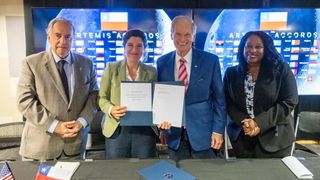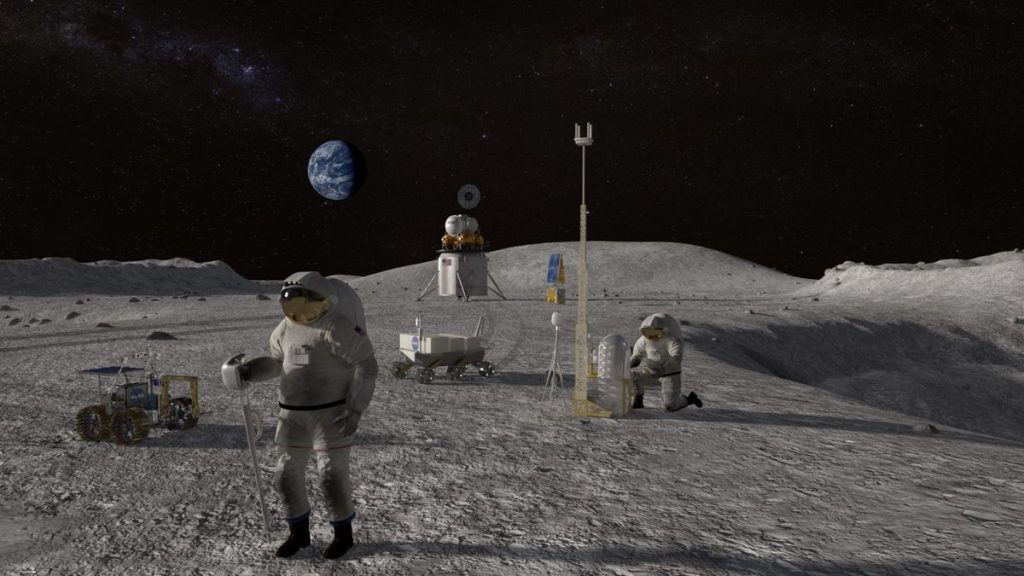Two more nations have joined the United States’ moon-exploring coalition.
Last week, Cyprus and Chile signed the Artemis Accords, which lay out principles and guidelines for the peaceful and responsible exploration of the moon and other off-Earth locales.
Their inclusion brings the total number of Artemis Accords signatories to 47.

“Today we welcome Chile’s signing of the Artemis Accords and its commitment to the shared values of all the signatories for the exploration of space,” NASA Administrator Bill Nelson said in a statement on Friday (Oct. 25), when Chile joined up.
“The United States has long studied the stars from Chile’s great Atacama Desert,” he added. “Now we will go to the stars together, safely, and responsibly, and create new opportunities for international cooperation and the Artemis Generation.”
Related: Artemis Accords: What are they & which countries are involved?
“The signing marks a significant milestone for Chile, particularly as our government is committed to advancing technological development as a key pillar of our national strategy,” Aisén Etcheverry, Chile’s minister of science, technology, knowledge and innovation, said in the same statement.
“Chile has the opportunity to engage in the design and development of world-leading scientific and technological projects,” she added. “Moreover, this collaboration allows us to contribute to areas of scientific excellence where Chile has distinguished expertise, such as astrobiology, geology, and mineralogy, all of which are critical for the exploration and colonization of space.”
Cyprus, meanwhile, signed the Accords on Wednesday (Oct. 23).
“Today marks a significant milestone for Cyprus as we officially sign the Artemis Accords,” Nicodemos Damianou, Cyprus’ deputy minister of research, innovation, and digital policy, said in a statement on that day.
“As we embark on this exciting journey, we reaffirm our commitment to a safe and responsible space exploration, as well as our strong belief in the importance of international cooperation in ensuring space is utilized to the benefit of all humanity,” Damianou added. “Cyprus, a European Union member state, is capitalizing on its geostrategic location between three continents, and aspires to play an integral role in the international space community.”
The U.S. set up the Artemis Accords in 2020, three years after NASA stood up its Artemis program of moon exploration.
That program aims to establish a permanent, sustainable human presence on and around the moon by the end of the 2020s. China has similar ambitions; it plans to build a moon base, called the International Lunar Research Station, in the 2030s. Like the United States, China is building a moon-exploration coalition, signing up Russia, Belarus, Pakistan, Azerbaijan, Venezuela and South Africa, among other nations.



